A little over three years after it declared its intention to build a "high-bodied vehicle", Rolls-Royce has taken the wraps off of the Cullinan SUV. Named after a 3,106-carat jewel extracted from a South African mine in 1905, the Cullinan represents the first time Rolls-Royce has tried its hand at building an SUV, or as the company likes to put it, the first time it has built an "all-terrain, high-bodied car" that makes luxury travel "effortless, everywhere."
That the Rolls-Royce Cullinan’s design was to mimic the Phantom's was an open secret ever since the first prototypes were spotted out in the wild, and the production version only reaffirms that fact. The face is trademark Rolls-Royce, with the stainless-steel pantheon grille taking centrestage, flanked by the eyebrow-like LED daytime running lights. Look at the Cullinan from the side, and you'll notice the strong shoulder line, 22-inch wheels, the suicide doors (on an SUV!), and the roofline dropping off gently at the back. Rolls-Royce says the protruding boot lid is reminiscent of the D-Back Rolls-Royces of the 1930s, some of the marque’s last to have a separate luggage compartment.
Based on the same aluminium spaceframe architecture as the Phantom (called the Architecture of Luxury), the Rolls-Royce Cullinan is noticeably bigger than its rival-in-chief, the Bentley Bentayga. It's longer, wider, and, at 3,295mm, boasts a significantly longer wheelbase, too; this should no doubt help free up more space for rear-seat passengers. If such a thing would even matter to a prospective super-luxury SUV buyer, the Cullinan also offers slightly more boot space than the Bentayga – 600 litres on the five-seat version, and 526 litres on the four-seat version.
In terms of design, the Rolls-Royce Cullinan's interior is virtually identical to the Phantom's. It gets a smaller steering wheel with a thicker rim, an all-digital instrument console, the trademark analogue clock on the dash, a touchscreen for the infotainment system – a first for Rolls-Royce – and the rotary Spirit of Ecstasy controller on the centre console.
While the Cullinan is a practical five-seater as such, one can also opt for the 'Individual Seat' configuration, which replaces the rear bench with two individual thrones, separated by a drinks cabinet that accommodates champagne flutes and a refrigerator. What this configuration also adds is a glass partition between the second row and the luggage compartment, which helps make the second row a more silent place to be, and maintains cabin temperature even when the tailgate is open. Then there's also the Viewing Suite – two leather seats with a cocktail table between them which extend from the Cullinan's rear compartment at the touch of a button.
Additionally, the Cullinan gets a full suite of safety features like night vision and vision assist, including daytime and night-time wildlife and pedestrian warning; alertness assistant; a four-camera system with panoramic view, all-round visibility and helicopter view; active cruise control and collision warning, to name some.
Powering the Cullinan is a completely reworked iteration of the 6.75-litre, twin-turbocharged V12, which produces 571hp and 850Nm of torque. Rolls-Royce wanted to give the Cullinan a strong bottom-end, and it has tuned the V12 to produce all its torque from as low as 1,600rpm. Top speed is electronically limited to 250kph.
The Cullinan is also the first all-wheel-drive offering from Rolls-Royce, and also features trick self-levelling air suspension, which helps it provide the famed 'Magic Carpet' ride quality across all manner of terrain. Rolls-Royce states the suspension makes millions of calculations every second as it continuously varies the electronically controlled shock absorber adjustment system – reacting to body and wheel acceleration, steering inputs and camera information.
Also on the centre console is the 'Off Road' button, pressing which will let owners drive the Cullinan through pretty much everything – rough track, gravel, wet grass, mud, snow or sand. When driving off-road, the Cullinan's electronically controlled suspension uses an air-compression system to actively push down any wheel it detects losing traction, to ensure every wheel is constantly in contact with the ground and that maximum torque is being provided to all wheels.
Though there is no word on pricing at this time, sources close to Rolls-Royce tell us that the Cullinan will not only slot into the chasm that exists between the Ghost (Rs 4.5 crore) and the Phantom (Rs 9.5 crore) in terms of pricing (both prices, ex-showroom, India), but will only be about 10 percent more expensive than the Ghost. The India launch of the Rolls-Royce Cullinan is expected to take place towards the end of 2018.
Also see:






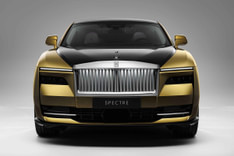
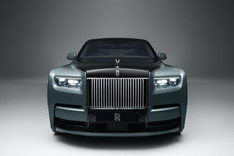
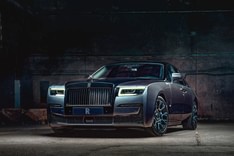
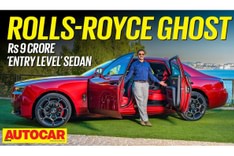
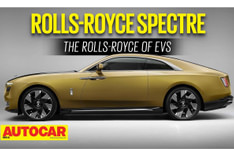

Comments
Member Login
Personal Details
No comments yet. Be the first to comment.